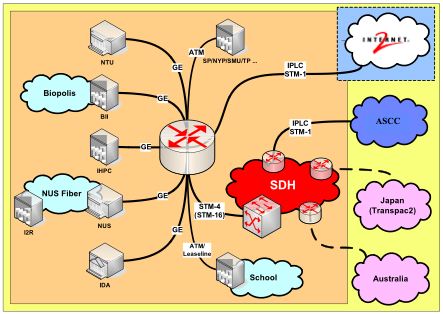February 17th, 2005
Streaming is stupid
» Internet
Via Joi Ito:
I’m listening to Andrew Odlyzko giving a talk right now about why Quality of Service (QoS) and real-time streaming is stupid. He showed a slide showing that P2P and other traffic are generally transmitting files at faster speeds than their bit rates. Basically, if you cache and buffer, you can have outages in the downloads and you’ll usually be fine. I agree. I can see why carriers would want to spread the rumor that QoS is some feature that we have to have, but it’s strange that so many researchers seem to think we will need QoS supported video streaming. Maybe they need to stop watching cable TV.
Bingo! I agree. I am on the file side of the debate – I see the future in download not streams. Streams dont offer more control then files – except giving you the constant worries how to deliver high amount of data to your users at the same time. Streams don’t give you any better DRM then files – Streams can be easily captured and converted into files without DRM.
Look around you – all the cool stuff we have today are file based – Tivo, iPod, Bittorrent, etc. No streaming service I know was successful. So I wasn’t too surprised when Steve Jobs say no to Sirius.
1 Incidently, Andrew already made similar points in his paper: Pricing and architecture of the Internet: Historical perspectives from telecommunications and transportation; I blog about it about a year ago.






